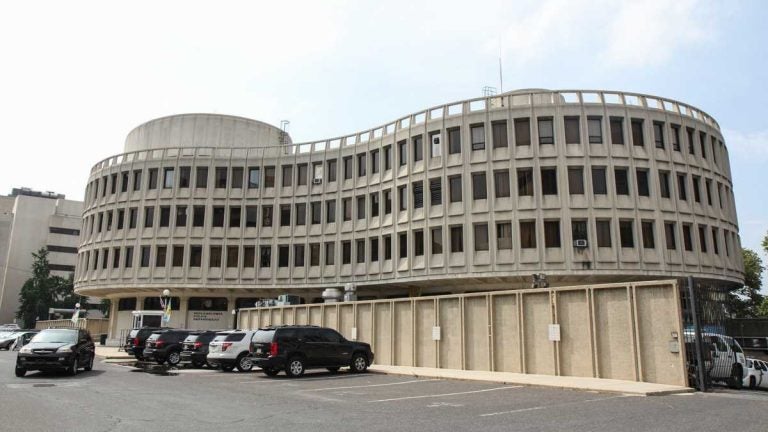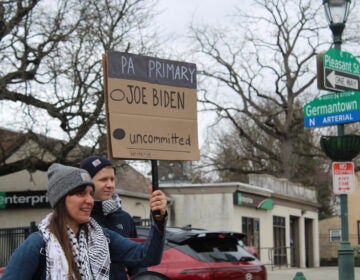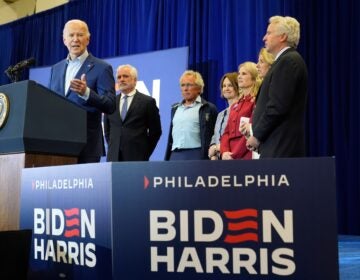Citing labor costs, Philly mulls service cuts
Listen
Philadelphia has agreed to pay two individuals $250,000 after they were targeted by police for filming officers on duty. (Kimberly Paynter/WHYY, file)
Philadelphia may be in for some service cuts as it struggles to pay for new municipal labor contracts, according to a city official.
Finance Director Rob Dubow’s comments came as the state board overseeing the city’s finances met Tuesday to approve a change to the city’s five-year plan to pay for a new police contract.
That agreement handed down by an arbitration panel gave officers a three-year contract with raises averaging 3.5 percent a year.
The Pennsylvania Intergovernmental Cooperation Authority staff said in a report the cost of that deal will more than wipe out a $200 million labor reserve fund the city had set aside.
And if contracts yet to come for two more city unions provide raises comparable to the police officers, those costs will eliminate all the financial cushion built into the city’s plan for four of the next five years.
Dubow said he’ll start talking to city department heads now about finding savings, and that could mean service cuts.
“I don’t think we’ll get through the process without some pain,” Dubow told the PICA board. “I think there will be things we’ll do that people will, you know, be unhappy about. But I think that’s just kind of the nature of making sure we’re fiscally stable.
The five-member PICA voted unanimously to approve the city’s modified five-year financial plan, but members expressed concern about the fiscal stresses the city faces.
Board member Alan Kessler said wiping out reserves in the city’s plan leaves the city vulnerable to an unexpected downturn or disaster, what he called the “curve balls” of local governance.
“We say that when you’re a mayor, or [you’re running] the city, you can deal with the fastballs,” Kessler said. “It’s the curve balls you have to be ready for, and, with no reserve fund, we have no ability to react to curve balls.”
Dubow declined to elaborate on what might be ahead, saying he’s just beginning the process of looking for savings.
Fred Wright, president of the city white-collar union, AFSCME District Council 47, one of two whose deals are yet to come, said any financial problem will be because past mayors failed to manage city finances, especially the pension fund.
“We should not take less, because we didn’t create the problem,” Wright said. “Nor should we be threatened with layoffs, nor should the public be threatened with service cuts.”
Wright’s union is negotiating with the city now. The other contract on the way, with city firefighters, will be decided by an arbitration panel.
Firefighter arbitration panels have historically awarded contracts similar to those given police officers.
WHYY is your source for fact-based, in-depth journalism and information. As a nonprofit organization, we rely on financial support from readers like you. Please give today.





